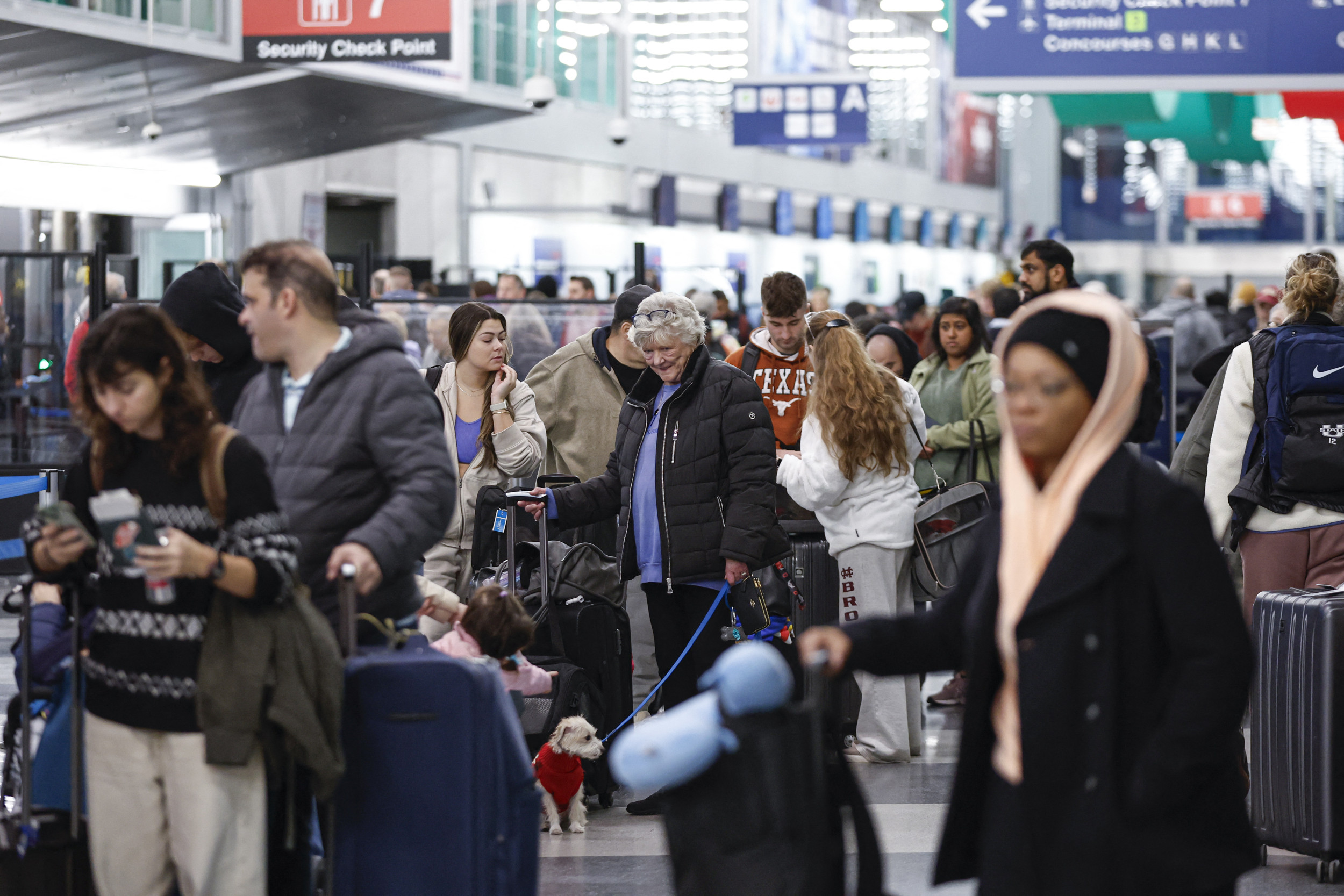Fashion
At NYFW, Models Push Governor to Sign Fashion Workers Act into Law

On the fifth day of New York Fashion Week, a handful of models opted to skip the runway, instead strutting to a government building in Midtown, Manhattan, where they hand-delivered over 100 letters to New York Governor Kathy Hochul.
These letters, penned by fellow models including Amber Valletta, Irina Shayk and Karen Elson, all urge the Governor to sign into law the Fashion Workers Act, a piece of legislation that would protect models from exploitation and regulate the industry.
After years of procedural deadlock, the Fashion Workers Act finally passed both of New York State’s legislative bodies in July, but without Hochul’s signature, the bill is not officially law. This means models in New York are working another season of fashion week without “basic protections,” said Sara Ziff, founder of Model Alliance, the nonprofit organisation advocating for the policy.
Governor Hochul will likely sign the act into law and has until the end of the year to do so, said Senator Brad Hoylman-Sigal, who introduced the bill in March 2022. The press conference Tuesday is meant to pressure the Governor to sign the bill sooner rather than later. “Every day that she doesn’t, more models will experience abuse, wage theft, and human trafficking,” Ziff said in a statement.
Convening outside of Hochul’s office Tuesday morning, members of Model Alliance held up signs that read, “This NYFW, give models labor rights” and “Governor Hochul, please sign the FWA.”
“Our community of models, who are literally the faces of this industry, lack basic labour protections,” said Ziff. “In fact, many models walking the runway this week, will leave New York saddled with debt and left in the dark about whether [and] how much they will be paid.”
This fashion week has seen plenty of political action elsewhere too. On Friday, the Council of Fashion Designers of America in partnership with Vogue and non-profit group I am a Voter organised a march across Manhattan in an effort to get more people to register to vote in November’s presidential election. Womenswear label Area, sponsored by dating app Tinder, donated $25,000 to Planned Parenthood and showcased a collection inspired by the reproductive justice slogan, “Bans Off Our Bodies.” Willy Chavarria is expected to host a panel discussion with the American Civil Liberties Union on Friday. Industry stakeholders, however, were noticeably absent from the Model Alliance press conference on Tuesday.
When signed into law, the Fashion Workers Act will grant models and other creatives in the fashion industry a number of workplace protections, mandating agencies such as IMG Models and Future Faces to communicate clearly regarding compensation and scope of work.
Historically, management agencies hold power of attorney over the talent they represent and are responsible for negotiating compensation as well as contract terms on behalf of the model, leaving them vulnerable to exploitation and abuse.
Under the Fashion Workers Act, models will be able to file complaints about agencies’ practices, such as late payments, with the New York state Department of Labor Commissioner. The law would also ensure that both talent managers and brand clients obtain consent from models in order to use their likeness in a digital replica created through artificial intelligence.
On Tuesday, model Jacob Aguilar recounted a story of how their management agency failed to pay them around $50,000 for modeling work done on a campaign, despite the brand having sent over payment.
“I felt hopeless,” said Aguilar. “I received my tax return that year that stated my income was over $50,000 even though I’ve only received a small percentage of it. I had to pay taxes on money that I didn’t receive, and that dug me into a deeper financial crisis.”
Hoylman-Sigal underscored the significance the law would have on the economic state of New York’s fashion industry.
“New York City is in danger of losing a large portion of the fashion industry to cities like Milan and Paris,” he said, citing a recent report from McKinsey about New York’s shrinking employment numbers in the sector. “Well friends, the way to recruit more people to the fashion industry in New York is to make sure their rights are protected as workers.”
The Fashion Workers Act has garnered support from organisations such as the CFDA and Garment Worker Center, but few brands have vocalised their support.
“As New York celebrates Fashion Week, I assure you, it’s not all glitz and glamour,” said Aguilar. “The fashion industry disguises wage theft, tax fraud and human trafficking behind fresh faces from around the world that come here seeking opportunities just to get taken advantage [of].”








